Tide Goes Out (2022)
The following are select pages from the 136 page book.
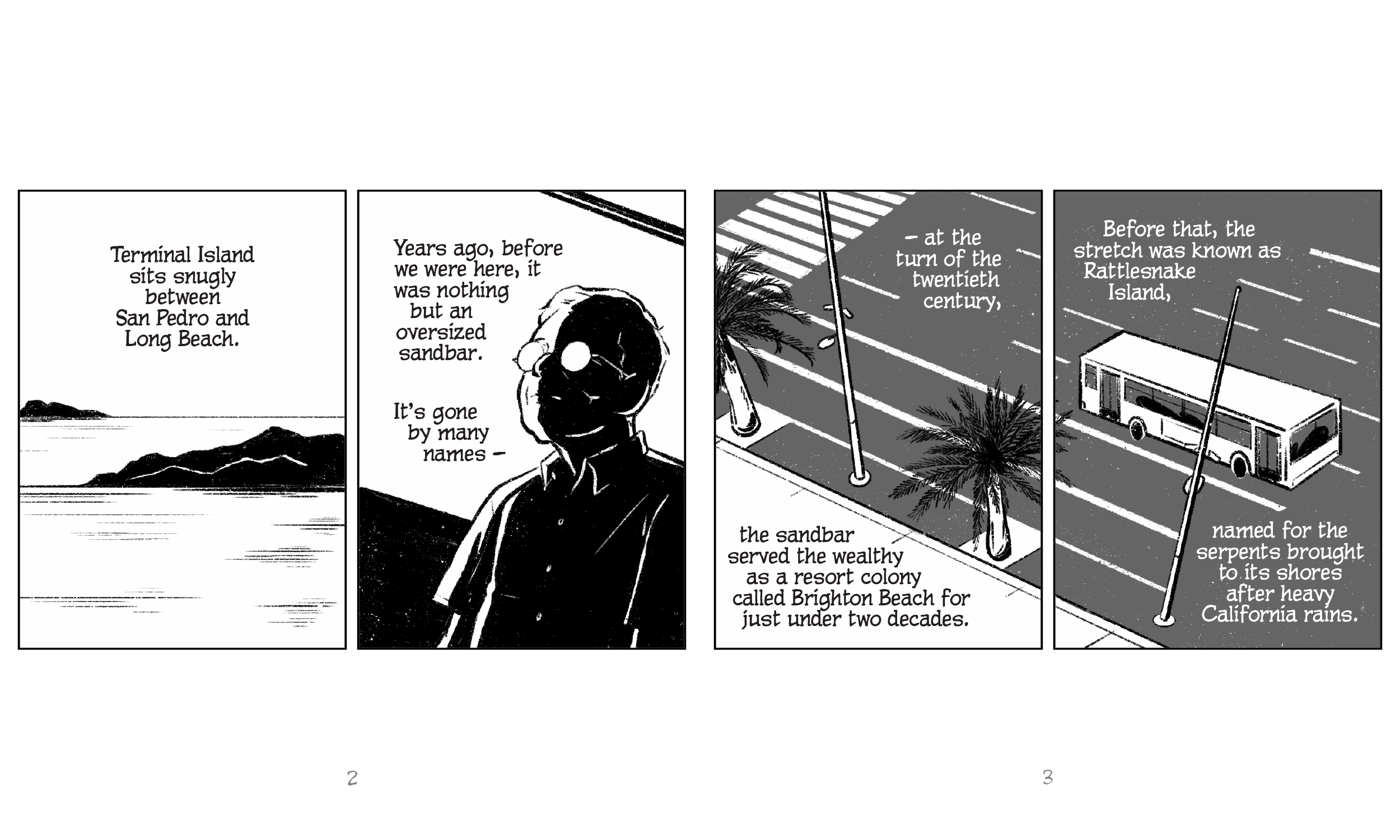


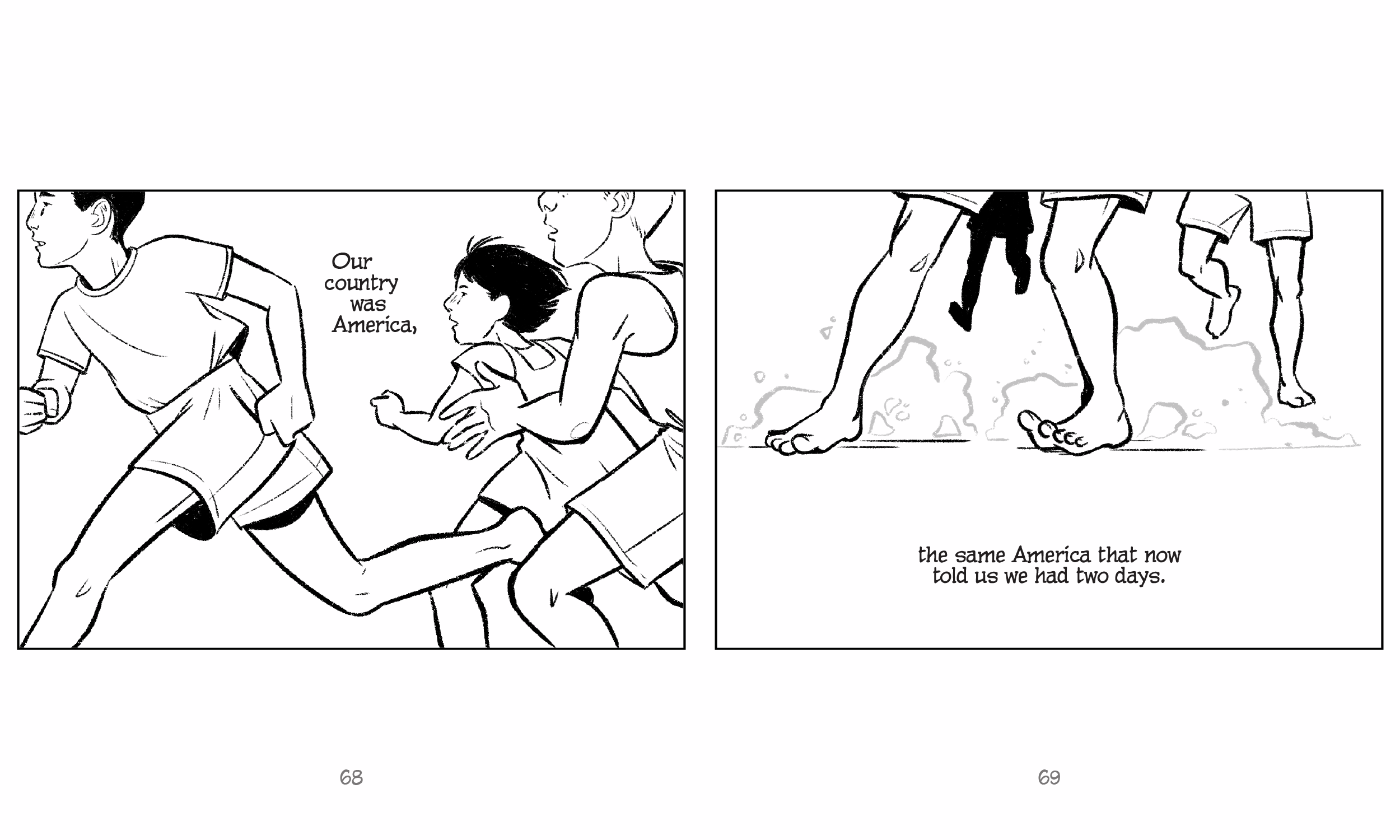

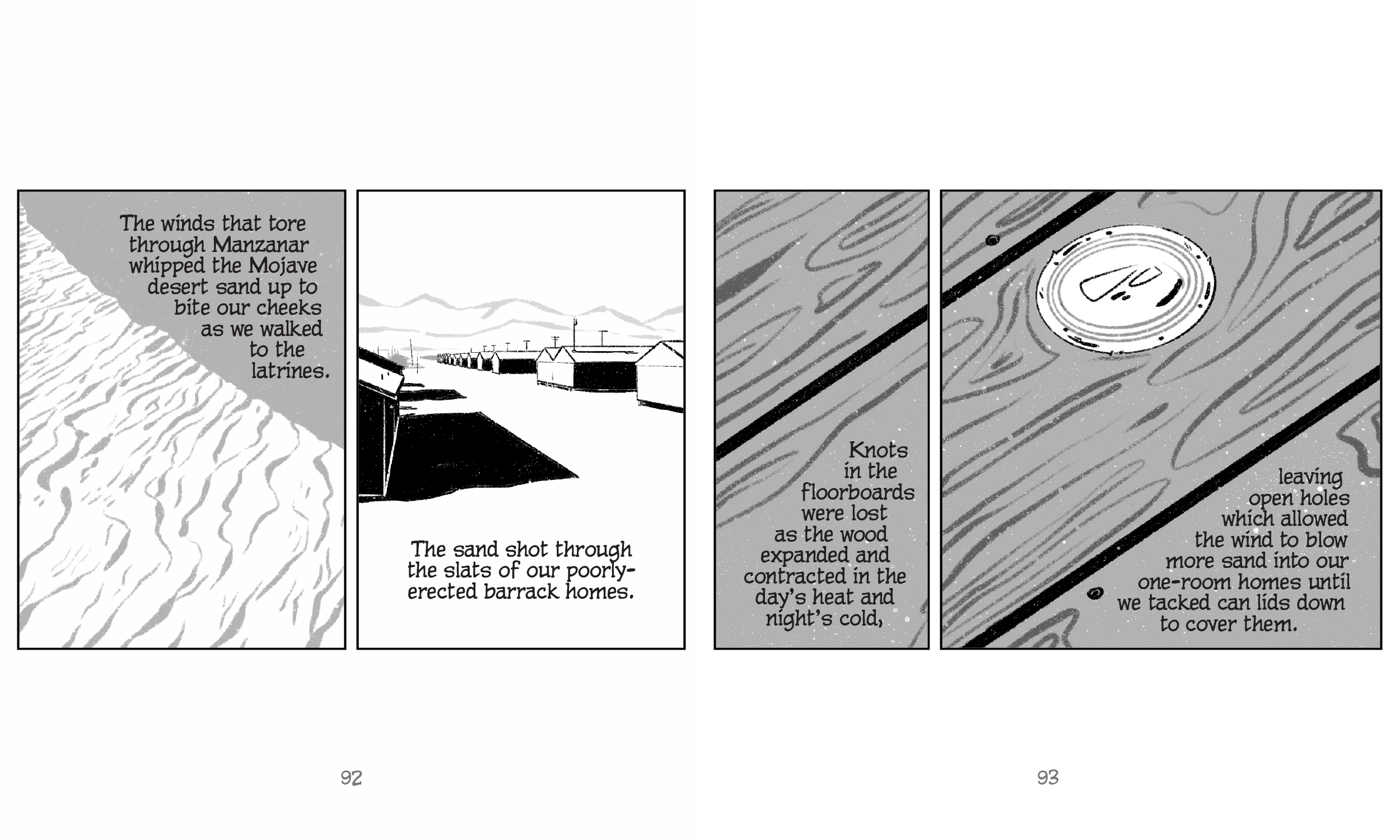
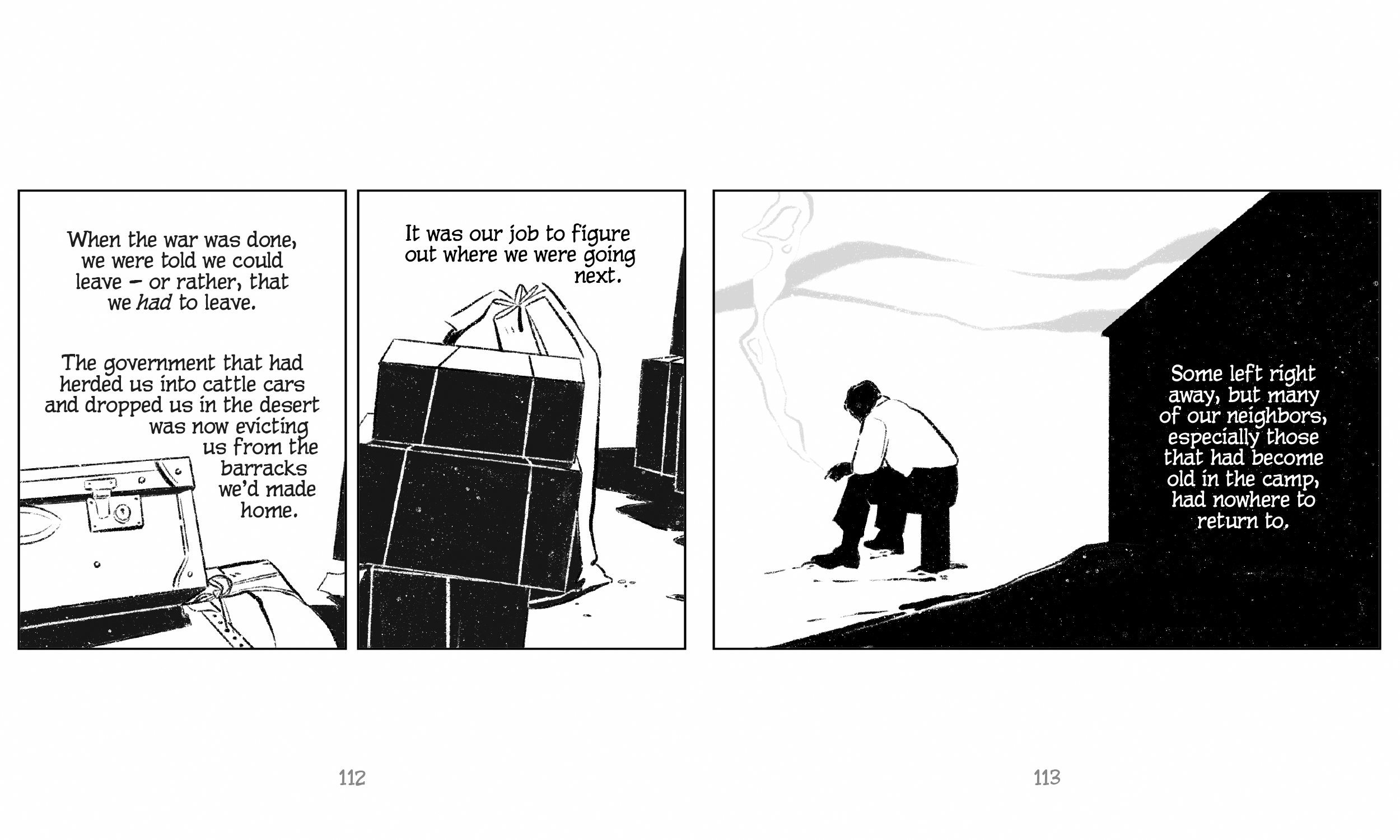
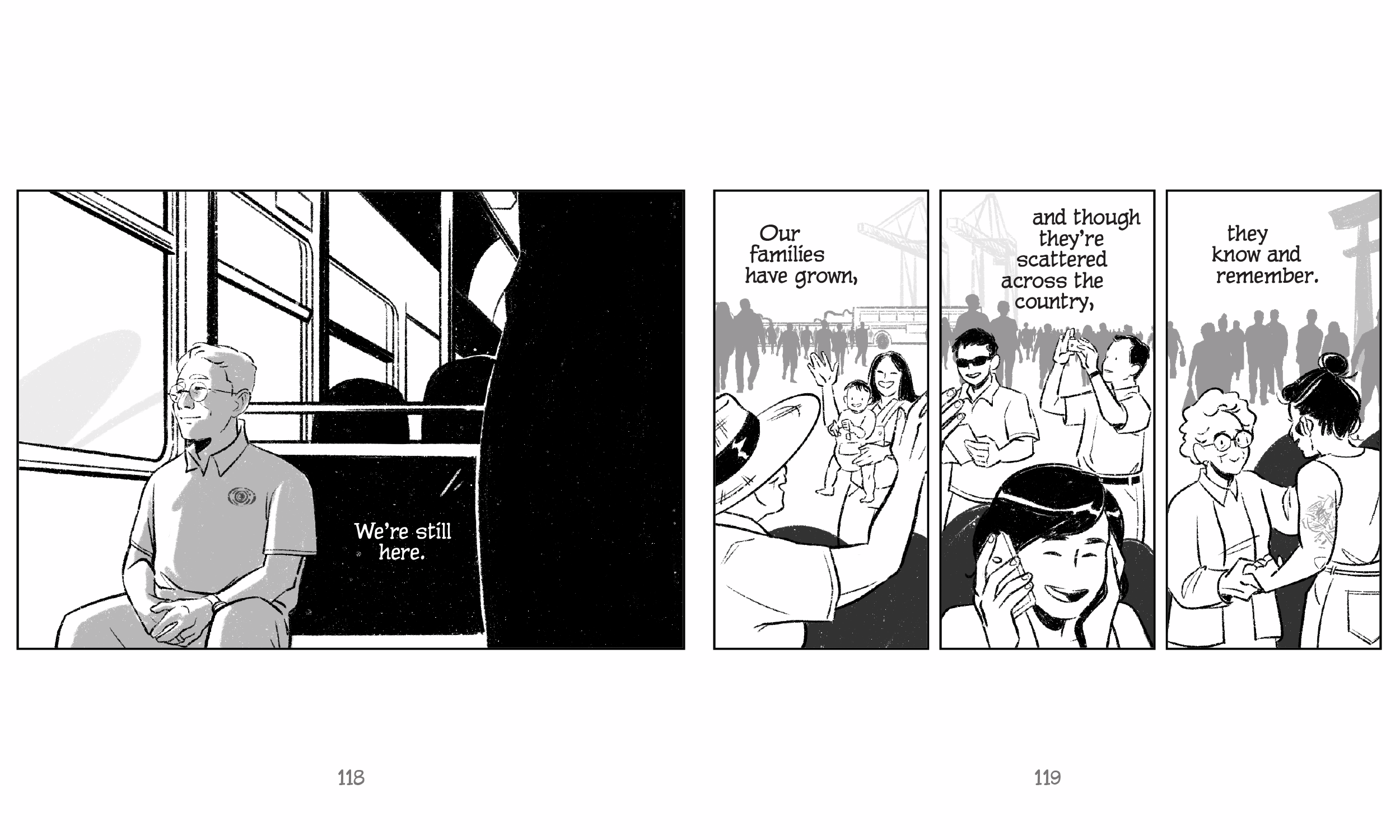

If you drive south down Seaside Avenue, eventually you’ll see the torii. It stands, proud and dark, guarding the two fishermen. They crouch, rounding up their nets, eyes fixed upon the black current off our shores, forever searching the bay of our lost village.
For nearly forty years, Terminal Island was home to a robust fishing community, comprised of thousands of Issei fathers, mothers, and their American-born children. On February 19th, 1942, the people of Fish Harbor were given 48 hours’ notice to evacuate their homes: a foreboding preview of their subsequent removal to the prison camps they would call home for the duration of the United States’ involvement in the Second World War. Within days of their departure, the United States government razed Terminal Island to the ground, the history and memories of the Japanese Americans that had built their lives on the island bulldozed along with it.
Part-biography, part-fiction, Tide Goes Out recounts one family’s journey from their early years on the shores of Terminal Island, through their evacuation and detention in Manzanar, and their eventual return to the place they once called home.
From the author
Tide Goes Out was written and realized thanks to a generous 2021 Artist in Residency grant from Densho. Visualized as a companion piece to In Your Path, Tide Goes Out is a semi-biographical account of the Murakami family’s forced removal from Terminal Island, California, their wartime incarceration at Manzanar, and their eventual return to the Long Beach area.
View the whole book on Densho’s website here.
For more information about Japanese American incarceration during World War II, including firsthand accounts from survivors, please visit Densho’s website.

